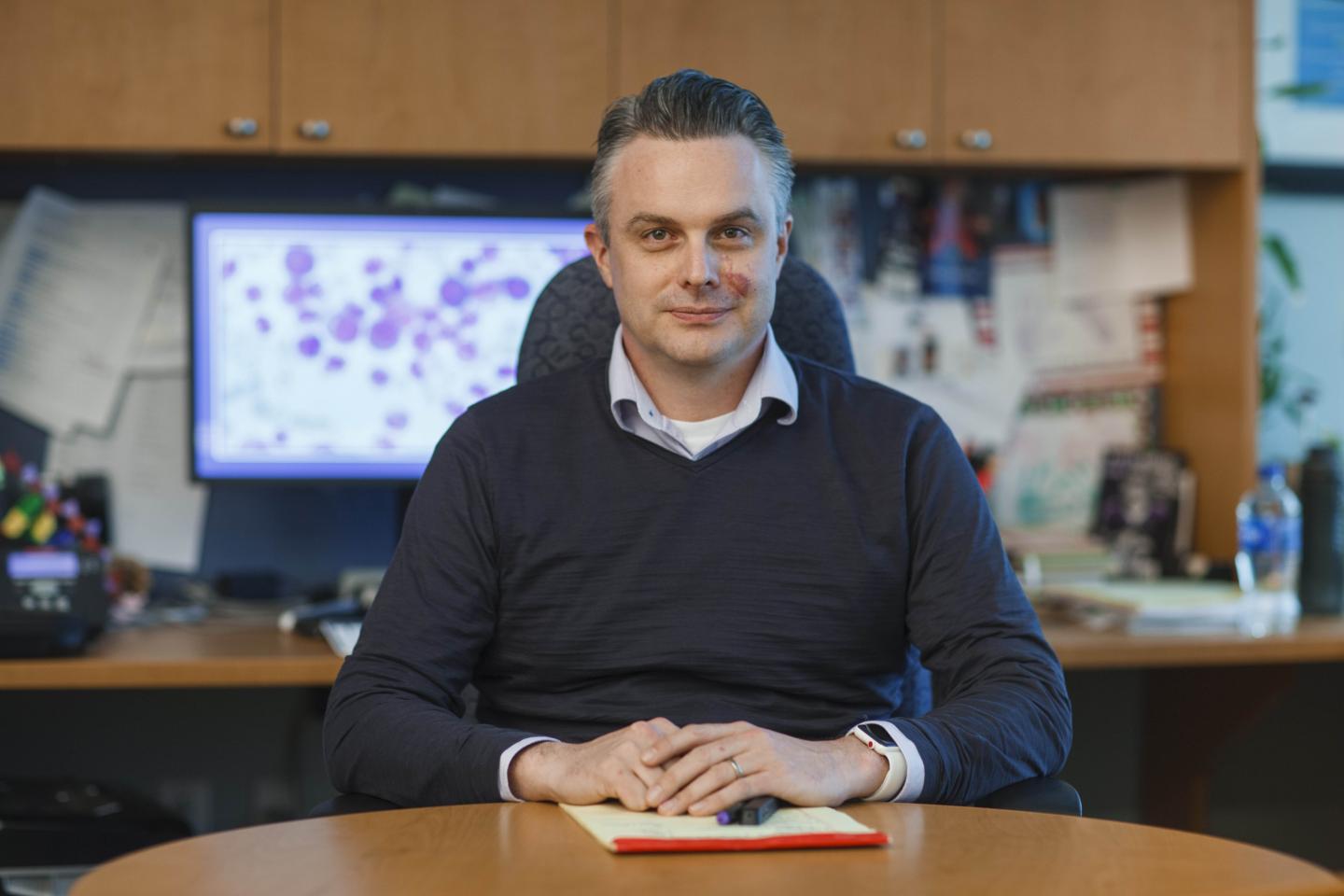
Credit: Scott Wiseman for Scripps Research
JUPITER, Fla.– Jan. 31, 2019 — Chemistry Professor Matthew D. Disney, PhD, of Scripps Research in Jupiter, Florida, has been awarded the Raymond and Beverly Sackler International Prize in Chemistry from Tel Aviv University. The prize recognizes outstanding scientists under age 45 and is intended to encourage dedication to science, originality and excellence.
Disney shares the 2019 prize with chemists Christopher J. Chang of the University of California, Berkeley, and Jason W. Chin, of Cambridge University in England.
Disney’s laboratory has demonstrated that RNA can be a small-molecule drug target, countering prevailing thoughts among many scientists, who considered RNAs undruggable due to their small size, relative lack of stability and undetermined specificity.
Most drugs work by binding with proteins. While a small fraction of the human genome encodes proteins, much more of it, about 70 to 80 percent, is transcribed into RNA. Disney reasoned that finding ways to bind drug molecules to RNA could offer new ways of tackling incurable diseases, and many more potential targets.
Disney’s group has proven that is the case. His group has developed broad approaches to the directed use of RNA genome sequence to inform the development of lead small-molecule medicines for multiple conditions with unprecedented potency and selectivity. Furthermore, his group recently developed methods to cleave RNAs in cells by locally awakening the immune system to seek out and destroy RNAs that are the root cause of disease.
These studies have already provided multiple lead medicines for incurable genetic diseases, including various forms of muscular dystrophy and ALS, and difficult-to-treat cancers. Because of this work, almost every drug company and many smaller biotechnology companies are pursuing RNA as a small-molecule drug target.
“I have been blessed with great teachers, especially my graduate advisor, Doug Turner, who taught me almost everything about science. I’ve also been blessed with an excellent environment at Scripps Research, where science is enabled by our staff,” Disney says. “I am especially grateful for the wonderful students in the lab. I would never have imagined that we would have gotten as far as we have. None of this would have been possible without these people.”
###
Chemistry Professor Ben Shen, PhD, co-chairman of Scripps Research’s bicoastal Department of Chemistry, predicts Disney’s work will benefit many.
“Matt’s research has fundamentally changed how the scientific community approaches RNA as drug targets for diseases with no known cure or treatment options,” Shen says. “He is richly deserving of the Sackler Prize.”
Media Contact
Stacey Singer DeLoye
[email protected]
561-228-2551
Original Source
https:/




